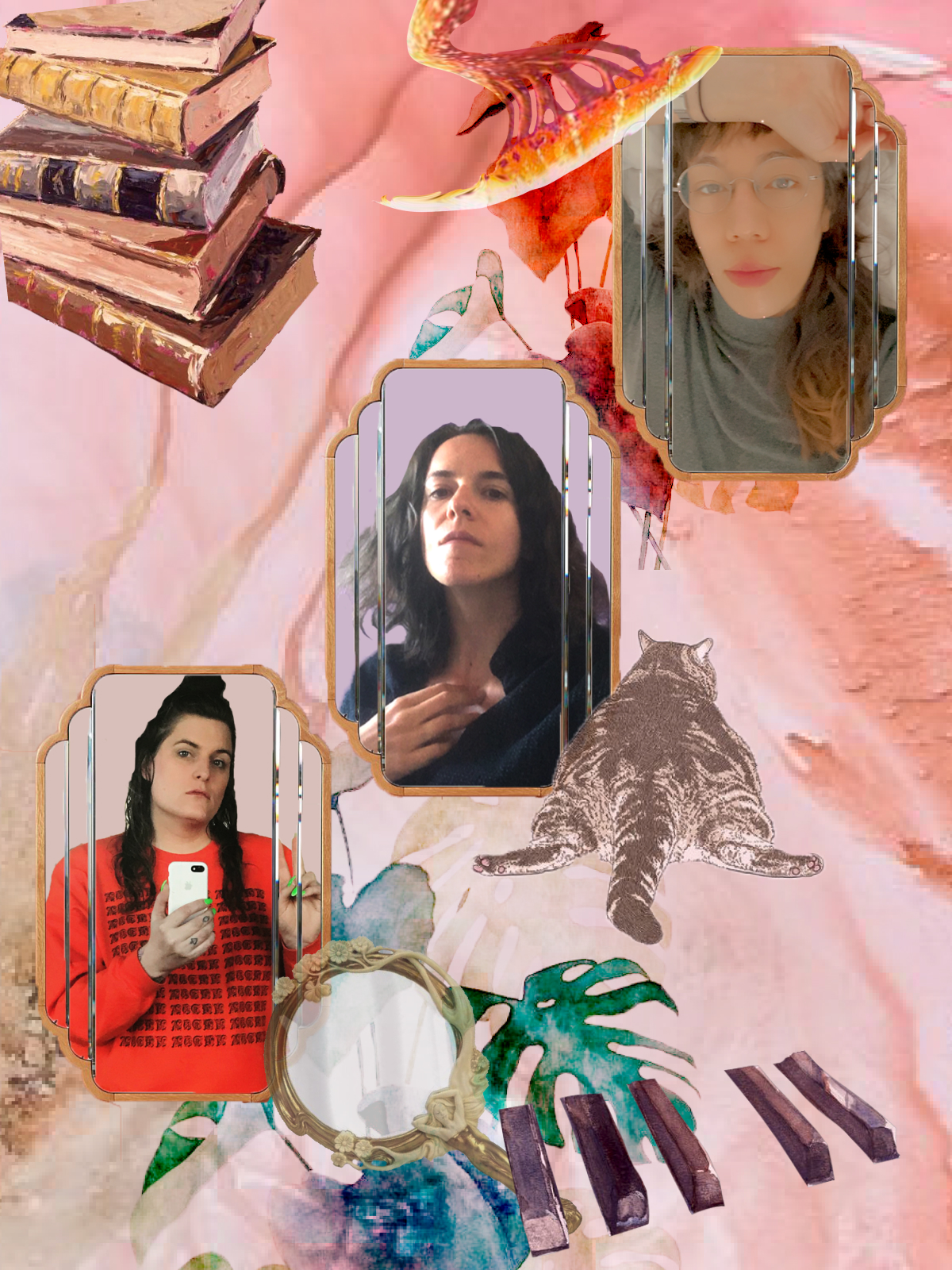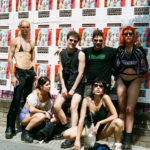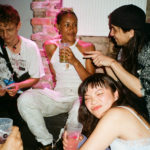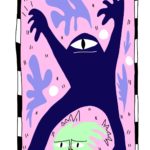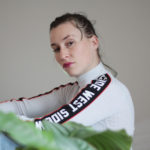When did you come to Berlin and have you always been a photographer? Sabrina: I…
Creatives Quarantine Interviews 1
we chat with three Berlin creatives on what self isolation has been like21 May 2020
In times of Covid-19, lockdowns continue in different degrees all over the globe and gatherings of all kinds -- but especially the hot and sweaty ones -- have been put on hold for an unforeseeable amount of time. How have these wonderful creatives been dealing with the unprecedented? YEOJA has collected the answers for you.
We at YEOJA Mag are determined to continue to bring you our regular content but have also decided as a team to feature certain articles relating to COVID-19 as it impacts our community; from mental health to xenophobia. You can find all COVID-19-related pieces here. There will be a lot to unpack and discuss in the coming weeks and months.
We have to admit… we had to get over our initial shock of what is happening before we could proactively put together this new series of quarantine snacks, served to you from all over this planet. Today, YEOJA will kick off a bunch of badass Berlin-based womxn we curated with a spoonful of love for you. While they all share a savviness of creativity, the way they make a living often depends on sharing their work with a live audience. In times of Covid-19,lockdowns continue in different degrees all over the globe and gatherings of all kinds — but especially the hot and sweaty ones — have been put on hold for an unforeseeable amount of time. How have these wonderful creatives been dealing with the unprecedented? YEOJA has collected the answers for you.
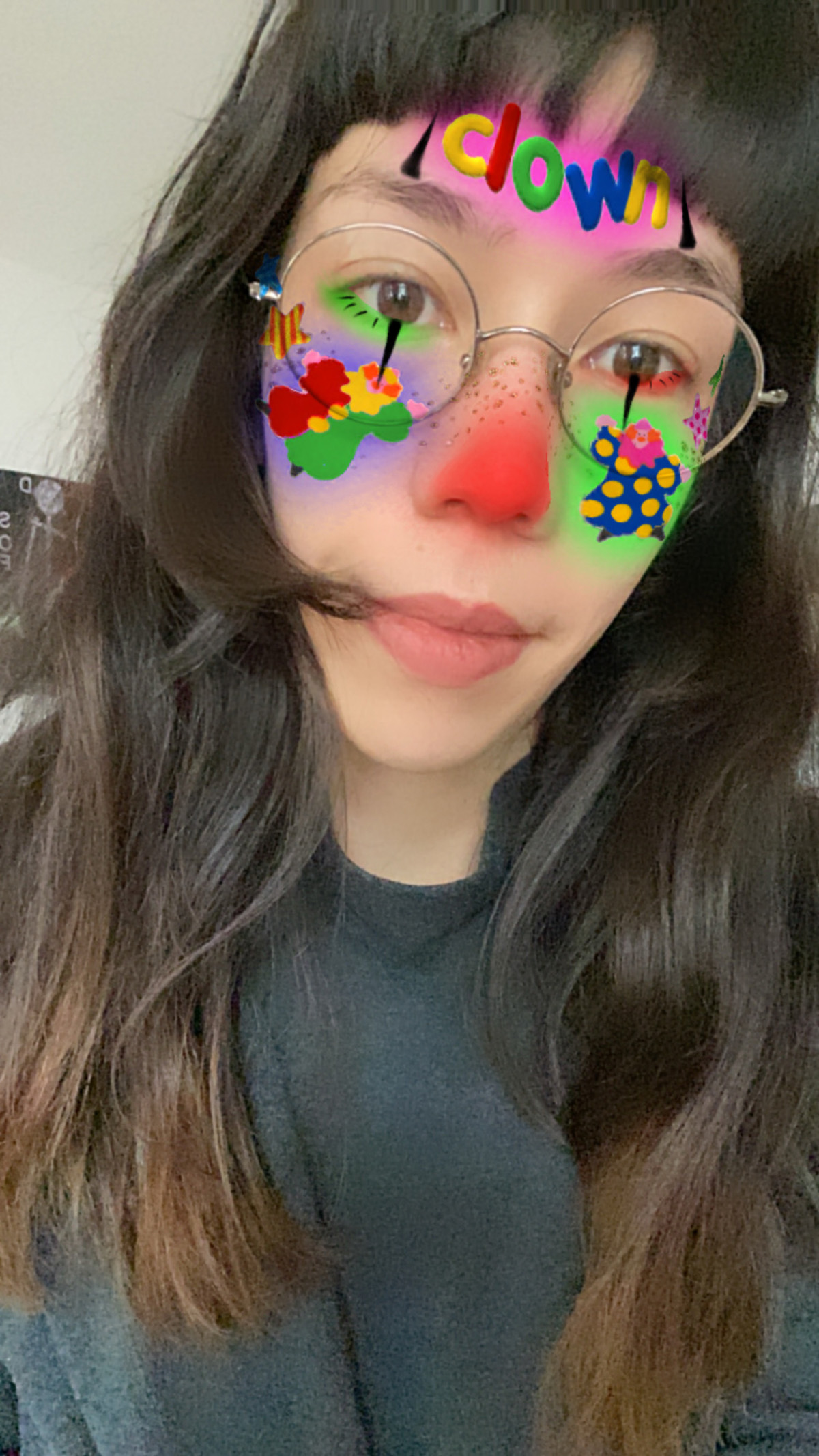
TABITHA SWANSON
Tabitha Swanson (@tabithaswanson_) is a Canadian multidisciplinary designer and creative technologist who creates and expresses herself using a variety of different disciplines including virtual reality, graphic design, art direction, and augmented reality filters for platforms like Instagram.
What is the last thing you remember doing before the shutdown?
Tabitha: I was already self-quarantining before shutdown as I’d been exposed to Covid prior to shut-down.So being in my room, I suppose.
Are you currently in self-isolation? Or are you in the company of friends, family, partners?
Tabitha: I’m isolating alone.
How has life changed for you? Which area has been affected most?
Tabitha: I’ve been drawn back to more intensely reading and writing. I was lucky that prior to lockdown, I was already a freelancer and I’m used to working from home.
Are you team ‘pick up a new hobby’ or team ‘we need to learn how to chill’? If the first, what new habits or coping mechanisms have you picked up?
Tabitha: I’m just going with the flow.
Are you able to tune into inspiration more or less?
Tabitha: Into a different type of inspiration, but yes. I’m reading and writing again.
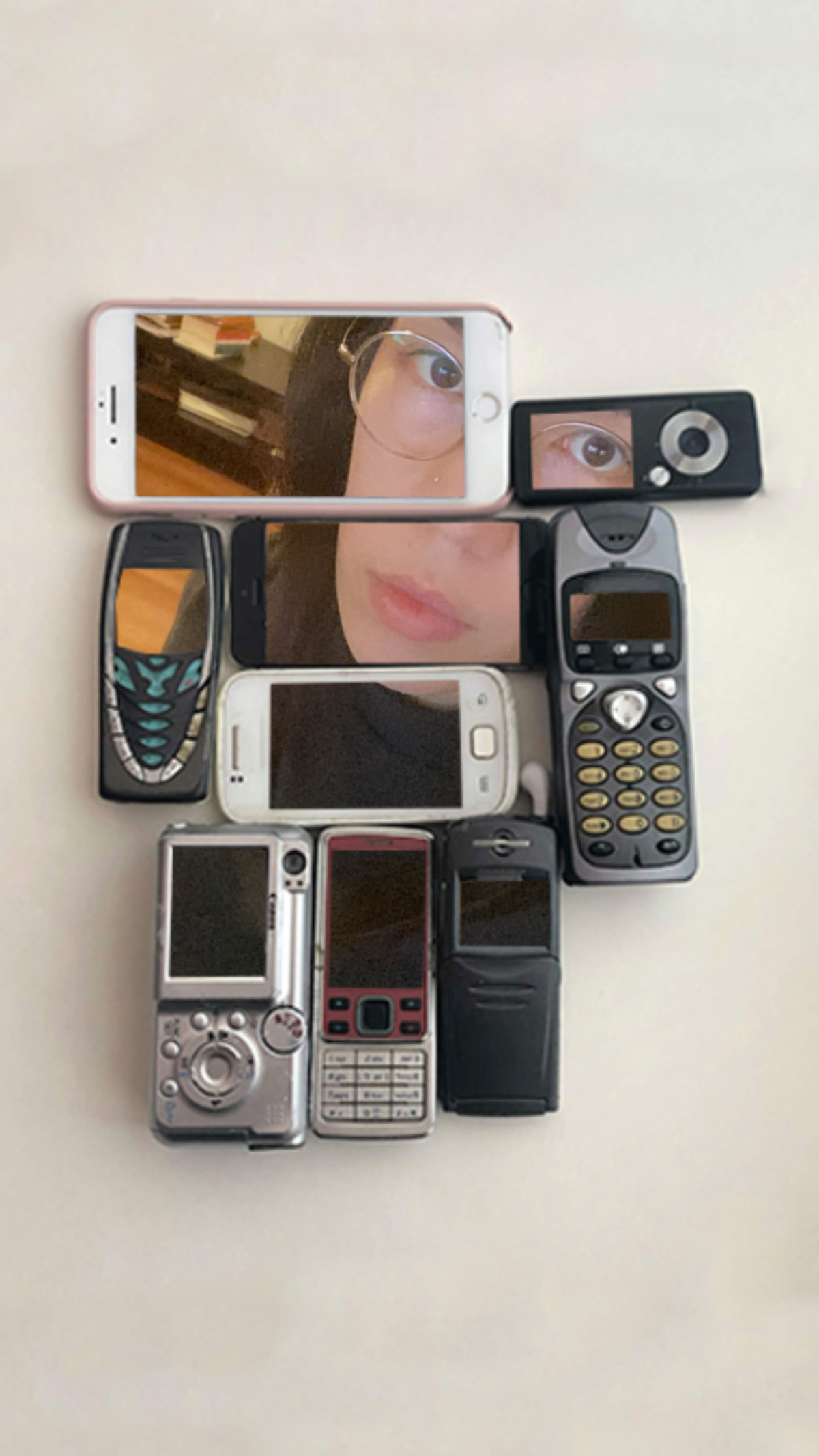
What do you miss most?
Tabitha: I miss seeing my friends and journaling in cafes.
What will you miss most when this is over?
Tabitha: I’m not sure it will be over for awhile. I’m trying not to think of an end date.
Are you feeling hopeful or fearful of what is to come after?
Tabitha: I agree with [Michel] Houellebecq (a famous french author) on the banality of this. Mostly apathy.
Have you been following the news? And how has that made you feel?
Tabitha: I have been. I think it’s easy to get overstimulated by it being thrown at you from all angles.
How has this time made you reflect upon your privilege?
Tabitha: I’m thankful to have work and a safe place to live. I know not everyone has that.
How do you think you can make the most out of it?
Tabitha: I think just live your life and be safe. There isn’t a specific recipe that will work for everyone.
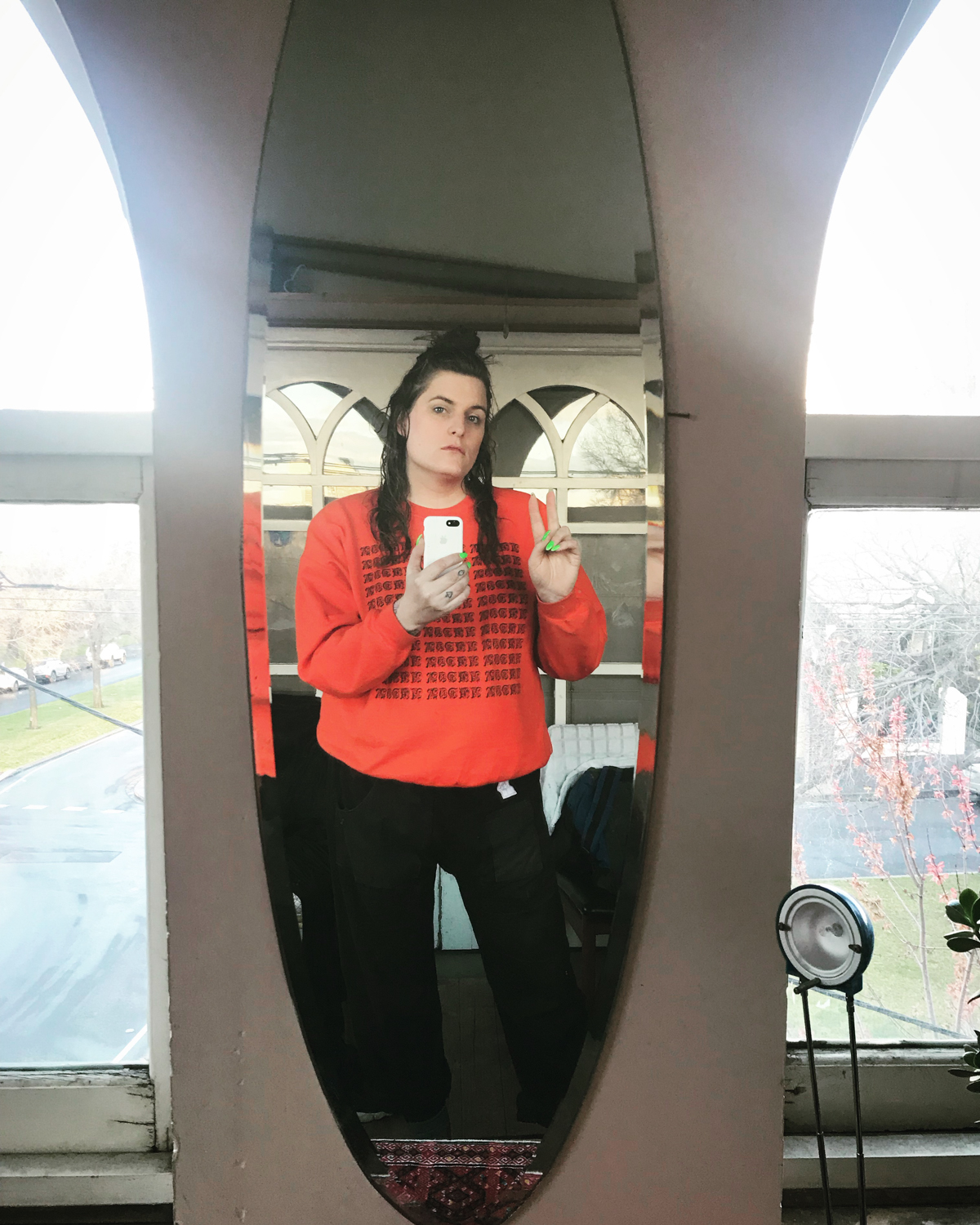
ZIÚR
Ziúr (@Ziurinhell) is a musician, producer, DJ, vocalist, performer as well as a curator at Trauma Bar and Kino, one of Berlin’s most exciting cultural hubs. Her sound and taste continue to influence not only Berlin’s experimental electronic scene.
What is the last thing you remember doing before the shutdown?
Ziúr: I remember a bright light in the sky and suddenly the birds stopped singing. It was an eerie feeling but simultaneously comforting. All the car alarms went off which was very annoying but they eventually stopped and the initial chaos got outlived by a very comforting silence.
Are you in self-isolation? And if so, where are you quarantining? Is it alone or with friends or (a) partner/s?/
Ziúr: It’s just me and my thoughts and the occasional walk to the store, attempting to make some new broccoli friends.
How have you been coping? How has your coronavirus rollercoaster ride been so far?
Ziúr: The best thing about the rollercoaster is that it’s a free ride, and you can find comfort in knowing that a rollercoaster is only gonna be a rollercoaster when it goes up after going down.
How has life changed for you since Corona? Which area has been affected the most?
Ziúr: Life is currently proving that time is just a construct and rather completely losing its relevance, and the area mostly affected is probably my bottom half.
How does it change your process:
Ziúr: Creatively? I’m good. Emotionally? Forever unstable. And existentially? Do I exist?
Are you team ‘pick up a new hobby’ or team ‘we need to learn how to chill’? If the first, what new habits or coping mechanisms have you picked up?
Ziúr: I discovered being all crafty and built a stylus out of my tinfoil hat and a Q-tip which really gave me a huge advantage playing drawful (a wilder version of pictionary in an app version). My nails grew way too long for being able to draw on my phone without any of these archaic inventions.
Are you able to tune into inspiration more or less?
Ziúr: All black keys*, definitely. [editor’s note: *black keys on the keyboard/piano]
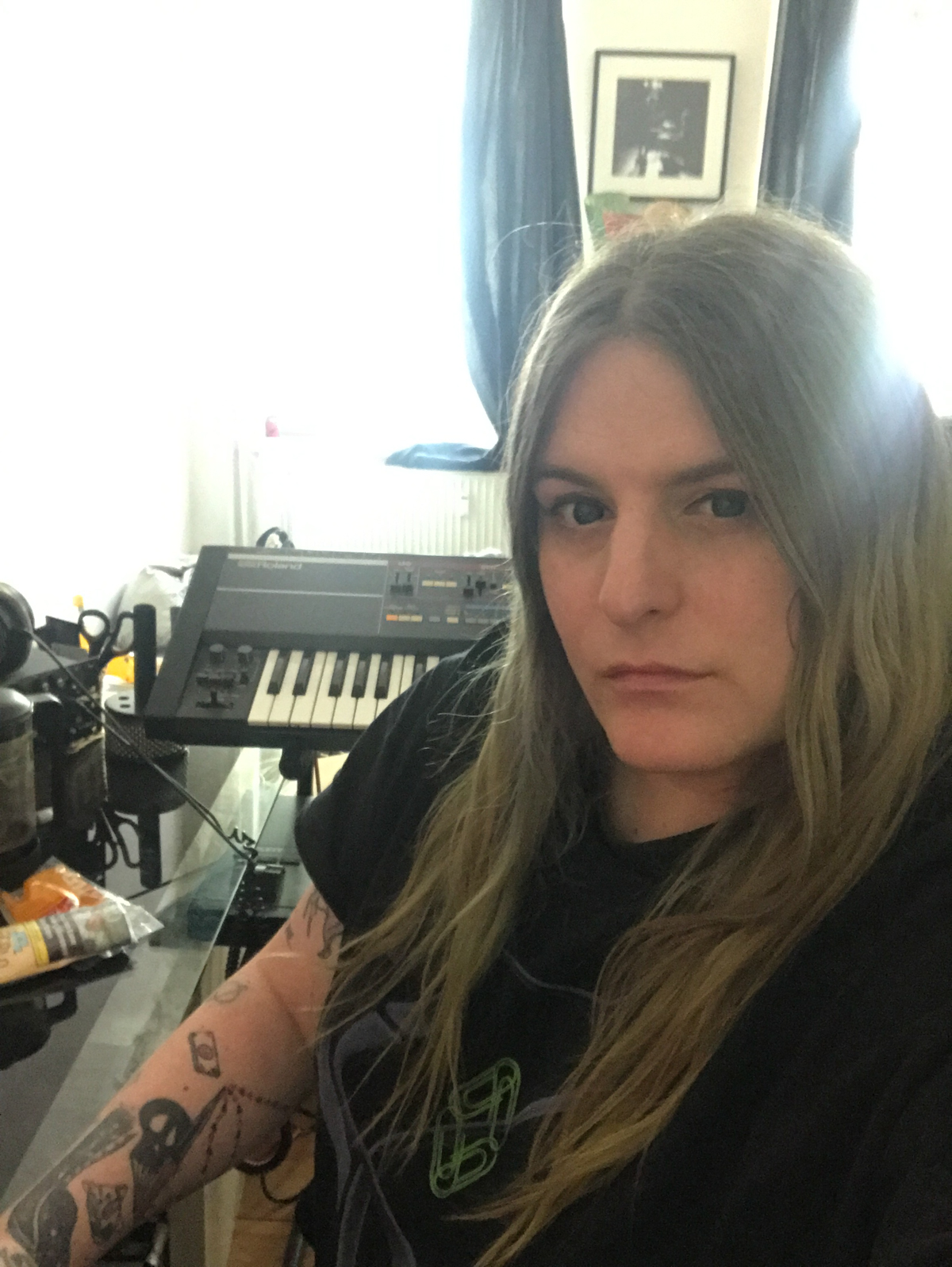
What have you learned about yourself since isolation?
Ziúr: I finally learned how to pronounce my name correctly.
What do you miss most?
Ziúr: Luckily it’s asparagus season, so I’m good for now.
What will take from this time and integrate once normality hits again?
Ziúr: I don’t want to go back to a broken system. I always felt uncomfortable in other people’s “normal”, so I don’t want this “normal” back.
Are you feeling hopeful or fearful of what is to come after?
Ziúr: Unstable forever – which is a fab survival mechanism.
How has this time made you reflect upon your privilege?
Ziúr: I’m trying to make myself reflect on privilege regularly and not only in times of crisis. If this now makes people ultimately reflect on their privilege, go ahead! Hopefully mindsets shift a little more towards a more collective way of thinking.
How do you think you can make the most out of it?
Ziúr: Being silly in interviews, being silly at dinner, being silly in dreams, etc.
What ‘advice’, feeling, words, song, playlist, youtube video comes to your mind after these questions or something you have enjoyed thoroughly these past weeks? or anything you created in the time, you’d like to share? Put down the first thing you can think of!
Ziúr: “So if it’s true that love will never die, then why do lovers work so hard to stay alive”. It’s a phrase from a The Cardigans song called “Please sister”.
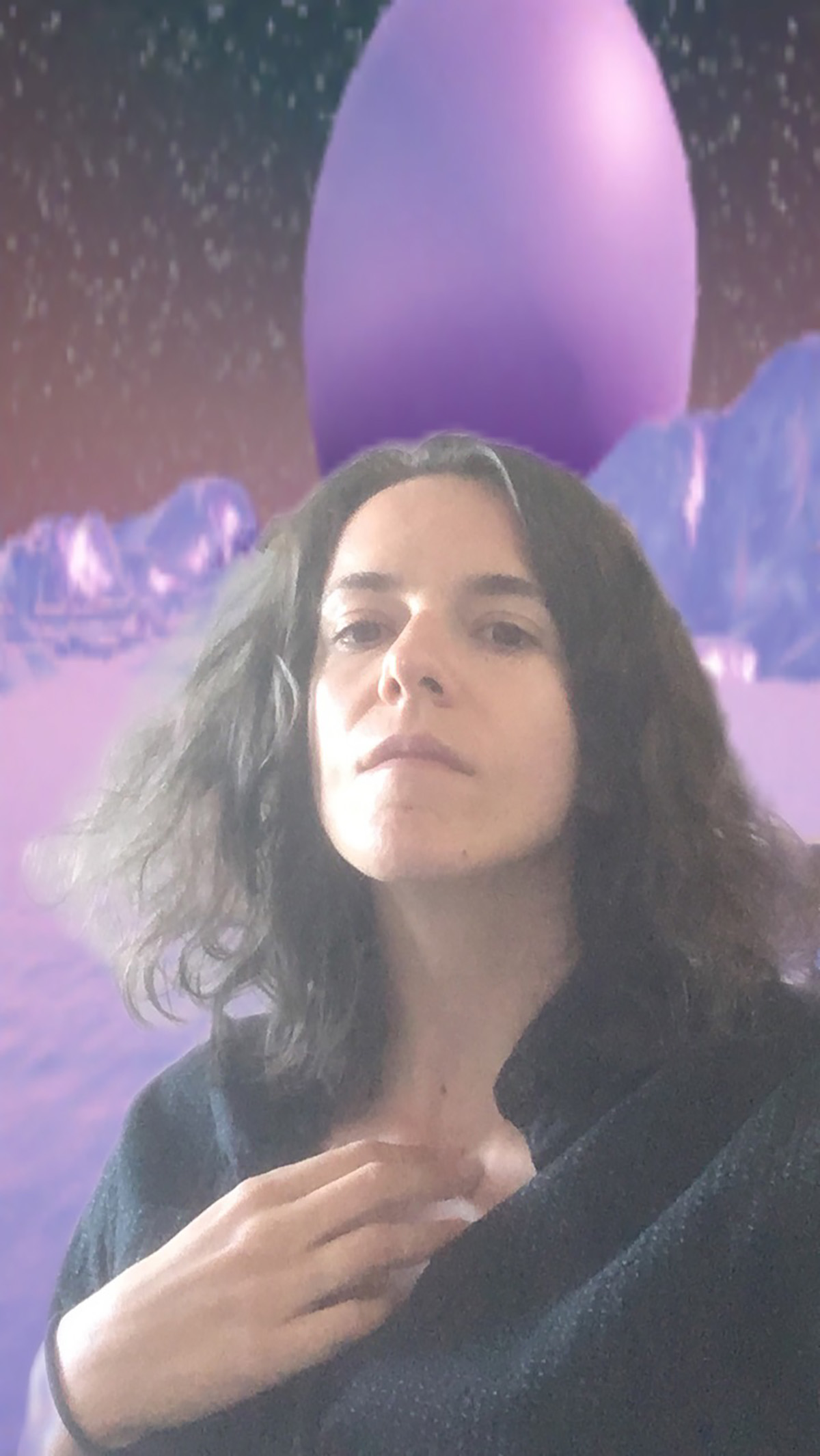
CAMILLE
Camille Lacadee’s (@camillelacadee) main areas of work include stage design, film and photography, as well as other areas such as architecture and writing. Originally from France, Camille is now based in Berlin after living in India and Thailand. She loves creating settings in which people can play and and perform, whether it be through video, installations, or “rearranging the plants at a friend’s place”.
What is the last thing you remember doing before the shutdown?
Camille: I remember going to a dance show with friends and telling them, “this better be good because I think it’s the last one we will see in ages! In France the lockdown got strict pretty quickly and I thought Germany would follow but I’m impressed by and grateful for the way it has been handled here.
Are you currently in self-isolation? Or are you in the company of friends, family, partners?
Camille: I live with two women and a cat named Chantale. We have a beautiful place with a terrace and rooftop, so quarantine is easy on us. I also began a coromance right at the start of the quarantine, and it’s pretty nice. It is of course peculiar to get to know each other under these circumstances but I always had a 1984-style romance fantasy; with the bed as the last place where the state could intervene.
How have you been coping so far?
Camille: No rollercoaster here. It’s pretty slow. Gardening, taking care of plants and of home, I guess, is what keeps me sane. But it’s been my way for years now. I think it is really important to see something growing, taking shape, blossoming, especially when other projects are on hold. It’s quite simple and very joyful.
How has life changed for you? Which area has been affected most?
Camille: Fundamentally it hasn’t changed much as I work from home most of the time. Some projects have been cancelled or postponed, while a few others came [through, although] certainly slower, but this instability is routine for a freelancer. I have always preferred meeting friends one on one than in groups and I would only go out at night to dance, which I now do at home with my flatmate. I started volunteering at Tafel Berlin, which collects, sorts and re-distributes food to people in need. I’m trying to focus on more direct and practical actions. I also try to be more articulate in my thinking, especially politically … and to read, research and not simply react. Generally, I’m trying to be calmer I guess, and less reactive.
How has this pandemic affected you creatively, emotionally and existentially?
Camille: With less deadlines and more free time, I’m more playful, more exploratory and I love this. I have more time to quench my curiosity. At the same time this is always the danger for me to open a thousand doors and remain at their threshold.
Are you team ‘pick up a new hobby’ or team ‘we need to learn how to chill’? If the first, what new habits or coping mechanisms have you picked up?
Camille: It seems the lockdown emphasised my natural tendency to start a million things and carry almost none of them through. I now can write pretty well with my left hand, have attempted to lower my voice, made twenty-six memory palaces (a learning technique using your imagination to enhance your memory) to remember German vocabulary, grew many plants from seeds, went grocery shopping for our neighbour, started Bonsai’s learned how to make Lasagna, regularly took part in Zoom full body workouts, designed a mountain on Tempelhofer Feld, started inline skating, made plans to design a video game, washed my cat, volunteered at the Tafel, learned a game engine software and how to make instagram filters. And I started reading many books obviously. Aside from this I still have freelance projects to work on but that’s rather slow.
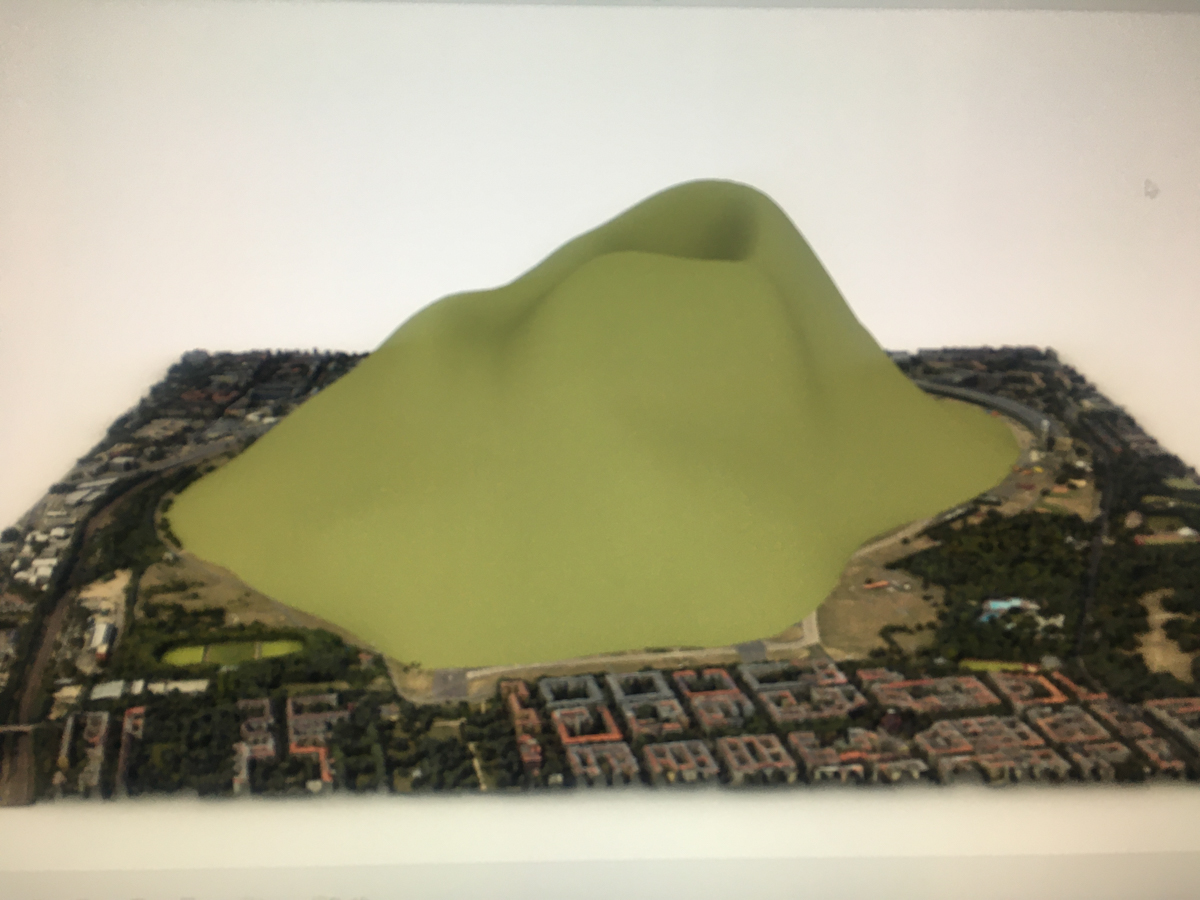
Are you able to tune into inspiration more or less?
Camille: So far, equally [to before] but I definitely see a potential for more. I think I’m a bit afraid to fully go there.
What have you learned about yourself since isolation?
Camille: I continue going to therapy and this has been quite interesting. The first weeks I realised I was crying at each session, for reasons seemingly unrelated to the pandemic, but I think a lot of pressure came down for many of us, leading us to release emotions we would normally hold on to or push back. You can feel this in the air.
It’s as if we are freezing life at an instance in time, and this is it, this is where you’re at, and now take a good look at it, because it’s likely to stay like this for a while. With almost no opportunity for projection or distraction this picture becomes difficult to ignore. In a way it reminds me of Solaris or Teorema, two of my favorite films, where an apparently external agent digs out something very deeply rooted in you, and you then have to deal with this manifestation that has surfaced, and come out into the world.
And another thing is that I see my face way more than usual, during video calls or while making Insta filters… At least it got me into skin care!
What do you miss most?
Camille: Not much. Random encounters probably, and just randomness in general.
What will you miss most when this is over?
Camille: I don’t think I will miss much as I generally adapt and forget quickly, but I will remember these times with love and compassion.
What will you take from this time and integrate once normality hits again?
Camille: Definitely more direct political engagement, and hopefully more calm and clarity.
Are you feeling hopeful or fearful of what is to come after?
Camille: Neither, even though the recession will hit hard, and this is only one in a series of events that will make the life we had before basically impossible to pursue. But to me this goes back to a problem I have been thinking about for a while now which is our (lack of) relation to death, aging, decay and cycles in contemporary western societies. I believe non-acceptance of death and its complexity is at the origin of many of the crises we are facing and are about to face.
Have you been following the news? How has that made you feel?
Camille: Yes, almost every day. I don’t really know how it makes me feel. For example the numbers have recently stopped meaning much to me. Apparently that’s what happens when they become too big.
Because I have the luck not to be directly confronted with it, Corona news sometimes feels like a fiction, with developments one can get hooked to. It can bring you both in and out of anxiety. What’s really frightening however is the disappearance of other news that is pushed under or entirely silenced.
How has this time made you reflect upon your privilege?
Camille: I think it made me take direct actions that I could have taken a while ago. This crisis, as I suppose every crisis does, clearly reveals and often emphasizes privileges, which in let’s say more serene times can be easily disregarded by those owning privilege. It makes things more evident, simpler and immediate.
How do you think you can make the most out of it?
Camille: The most of my privilege? It’s not clear to me yet and I suppose it should go beyond a personal question. The roots and reproduction mechanism of privileges should be structurally dismantled as much as possible. Acts of ‘charity’ from the most powerful only secure a system of inequalities, while making the more privileged ones pass for heros, philanthropists, and so on. It could be otherwise.
Anything you care to share with the YEOJA readers?
Camille: I can strongly recommend online events organized by Haymarket Books. *And here are some screenshots of the set I made for a video clip I am currently working on.
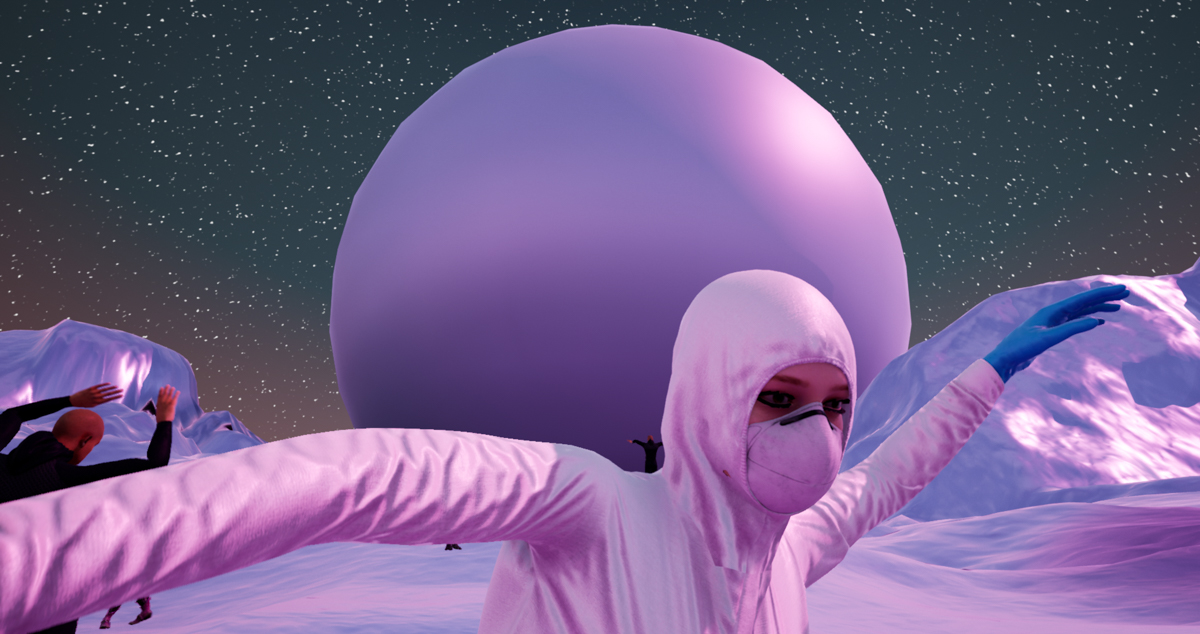
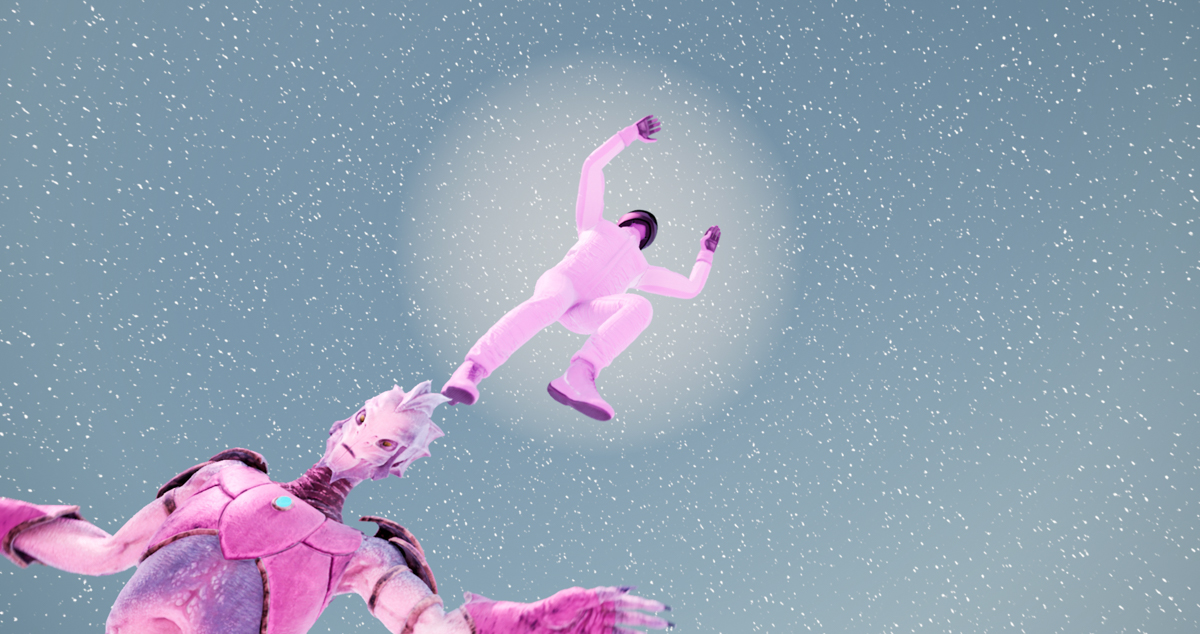
_
To read our article on how to take care of yourself and others in times of social distancing and/or quarantine, click here or read our interview with mental health professionals here. For other COVID-19-related pieces click here



